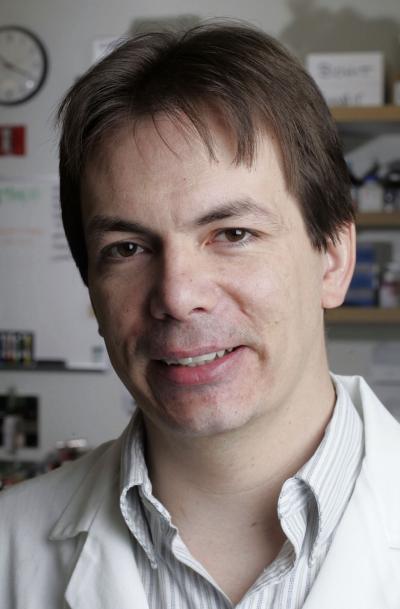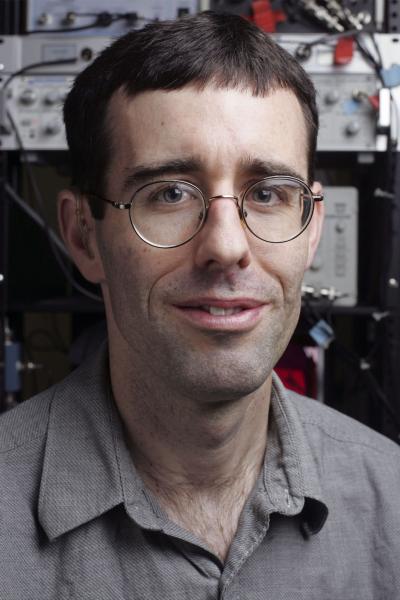April 7, 2005
School of Medicine faculty become HHMI investigators
Two UW School of Medicine faculty members, genome researcher Dr. Evan Eichler and neuroscientist Dr. Fred Rieke, have been selected investigators of the Howard Hughes Medical Institute (HHMI), one of the world’s premiere funding organizations for biomedical research. Selection as an HHMI Investigator affords researchers a source of long-term, flexible funding to pursue their interests wherever they lead.
The institute periodically selects new members from among the nation’s best researchers in the ascending phase of their careers. Those selected are pursuing significant biological topics, pushing the limits of their fields, creating new tools and methods in biomedical science, and are fostering links between biology and medicine.
The HHMI investigator program has tapped some of the top minds in biomedical research. Members have made many important research advances, ranging from the discovery of smell receptors and the organization of the olfactory system, to the development of a more comfortable test for genetic mutations associated with colon cancer. HHMI investigators have been awarded Nobel Prizes in five of the last six years. Among them was UW Affiliate Professor Linda Buck, who won the Nobel Prize for physiology or medicine in 2004. The UW now has 13 full-time faculty members who are HHMI investigators.
Eichler, an associate professor of genome sciences, studies duplicated sequences and genes in the human genome, as well as genome variations between humans and other primates. He also researches genetic diseases, such as Prader-Willi and Angelman syndromes, that are caused by chromosomal abnormalities. Those types of diseases are related to duplicated sequences in the genome. Eichler graduated from the University of Saskatchewan with a bachelor’s degree in biology, and received a Ph.D. in molecular genetics from Baylor College of Medicine. He won the Basil O’Connor Young Investigator Award from the March of Dimes, and a Distinguished Human Genome Postdoctoral Fellowship from the Department of Energy. He is also an affiliate investigator in the Fred Hutchinson Cancer Research Center’s Human Biology Division.
Rieke, an associate professor of physiology and biophysics, studies how the visual system works in conditions ranging from starlight to bright sunshine. He examines the first steps in vision by using a variety of approaches, such as tracking signals produced in visual receptors across the retina. His goal is to understand how the retina processes its input signals. Rieke received his bachelor’s and doctoral degrees from the University of California, Berkeley. He has been named a National Science Foundation Graduate Fellow and has won a McKnight Scholar award from the McKnight Endowment Fund for Neuroscience.
Rieke and Eichler join 41 other scientists in biomedical research, as well as chemistry, engineering, physicis, and computer science, in being named new HHMI investigators. The organization already employs 298 scientists leading HHMI-funded labs at 64 institutions. The selection of new investigators represents a commitment by the organization of more than $300 million in additional biomedical research funding over the next seven years. HHMI, a nonprofit medical research organization, has an annual research budget of about $400 million. For more information, visit the institute’s Web site at http://www.hhmi.org/


